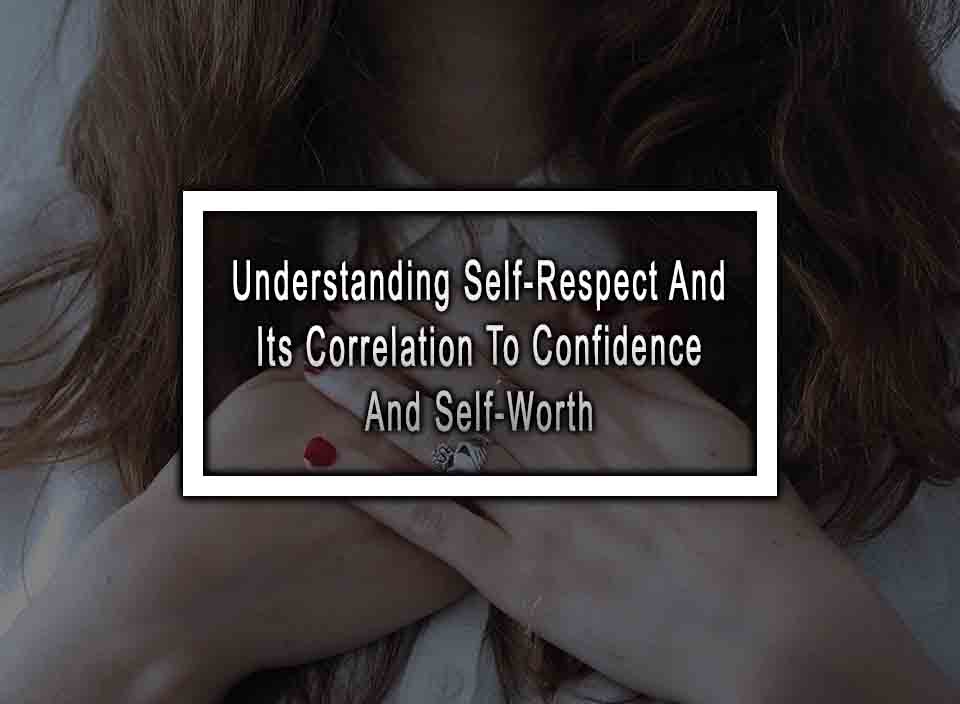Table of Contents
ToggleThe Fundamentals of Self-Respect
In a world that constantly demands more from us, it’s easy to forget the importance of self-respect. As individuals, we often prioritize external validation, seeking approval from others rather than prioritizing our own needs. However, cultivating self-respect is the key to unlocking personal growth, happiness, and success. In this article, we will explore the significance of self-respect, discuss its impact on mental well-being, and relationships, and provide practical tips to build and nurture a healthy sense of self-respect.
Understanding and Embracing Self-Respect for a Fulfilling Life
Self-respect is the foundation upon which our self-esteem, confidence, and self-worth develop. By acknowledging and valuing our own feelings, beliefs, and boundaries, we set the stage for healthy relationships, assertiveness, and overall satisfaction with our lives. According to influential psychologist Abraham Maslow, self-respect is a fundamental human need that is crucial for self-actualization, the highest level of personal fulfillment.
The Impact of Self-Respect on Mental Well-being
When we lack self-respect, our mental well-being is greatly compromised. We may find ourselves trapped in negative thought patterns, experiencing increased stress, anxiety, and even depression. Conversely, by prioritizing self-respect, we cultivate a sense of inner peace, resilience, and confidence in our abilities. It allows us to set healthy boundaries, refuse toxic relationships, and overcome obstacles with grace and determination.
Building and Nurturing Self-Respect
Fortunately, self-respect is not an innate quality; it can be cultivated and strengthened through conscious effort. Here are some practical strategies to prioritize and nurture your self-respect:
1. Self-reflection: Take time to assess your personal values, needs, and beliefs. Be mindful of any self-limiting beliefs you may hold and challenge them.
2. Set Boundaries: Establish clear boundaries with others and learn to say “no” when necessary. Respecting your own time, energy, and emotional well-being is crucial.
3. Practice Self-care: Prioritize self-care activities that nourish your mind, body, and soul. Engage in activities that bring joy and relaxation, promoting a positive sense of self.
4. Surround Yourself with Positive Influences: Seek out relationships and communities that uplift and support your growth. Surrounding yourself with positive individuals who appreciate and respect you will reinforce your self-respect.
Conclusion
In a world where external validation often takes precedence, it’s essential to prioritize self-respect. By acknowledging our own worth, setting boundaries, and nurturing our well-being, we unlock immense personal potential. Embracing self-respect not only enhances our mental well-being but also empowers us to develop fulfilling relationships and achieve our aspirations. Let us remember that self-respect is not selfish; it is a prerequisite for a truly satisfying and successful life.
Self-Respect FAQ
Here are the most common questions about self-respect.
1. Why is self-respect important?
Self-respect is important because it contributes to your overall well-being and happiness. When you have self-respect, you tend to have higher self-esteem and confidence, make choices that are in your best interest, and maintain healthier relationships with others.
2. Can self-respect be developed at any age?
Yes, self-respect can be developed at any age. It is a lifelong journey that can be initiated and enhanced at any stage of life. Whether you are a child, teenager, adult, or older adult, investing in your self-respect is always beneficial for your overall well-being.
3. Can self-respect be regained after it has been lost?
Absolutely! While self-respect may become compromised due to various factors such as past experiences or low self-esteem, it is possible to regain it. It may involve working through past traumas, seeking therapy or counseling, practicing self-care, and consciously making choices that honor your self-worth. With effort and self-reflection, self-respect can be rebuilt and strengthened over time.












